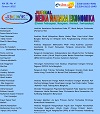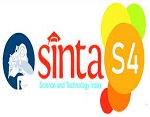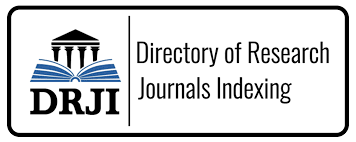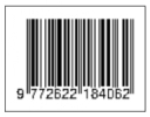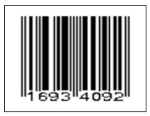Analisis Pengaruh Pengetahuan Pajak dan Tingkat Pendidikan Terhadap Kepatuhan Wajib Pajak Orang Pribadi dalam Pembayaran Pajak Penghasilan (PPh) di KPP Pratama Palembang Seberang Ulu
DOI:
https://doi.org/10.31851/jmwe.v18i4.7448Abstract
ABSTRAK
Â
Penelitian ini merupakan penelitian yang bersifat kausal komparatif dengan pendekatan kuantitatif. Pengambilan sampel dilakukan dengan teknik insidental sampling dengan 100 responden. Metode pengumpulan data menggunakan metode kuesioner dalam bentuk pertanyaan tertutup. Sebelum kuesioner dibagikan dilakukan uji coba istrumen untuk diuji validitas dan reliabilitasnya agar memperoleh hasil yang sesuai dengan fakta. Selanjutnya teknik analisis data dilakukan dengan uji asumsi klasik yaitu uji normalitas, uji heteroskedastisitas, dan uji multikolinearitas sebagai syarat uji regresi untuk pengujian hipotesis. Uji hipotesis yang digunakan adalah analisis regresi linier berganda.
Hasil dari penelitian ini menunjukkan bahwa Pengetahuan Perpajakan, Tingkat pendidikan dan kepatuhan wajib pajak berpengaruh singnifikan 0.00 < 0,05 akan tetapi nilai konstanta dari Pengetahuan Pajak bernilai negatif hal ini disebabkan oleh beberapa faktor yang membuat hasil dari pengetahuan pajak berpengaruh negatif.
Â
Kata Kunci: Pengetahuan Pajak, Tingkat Pendidikan, dan Kepatuhan Wajib Pajak Orang Pribadi.
Â
ABSTRACT
Â
This research is a comparative causal research with a quantitative approach. Sampling was done by incidental sampling technique with 100 respondents. The data collection method used a questionnaire method in the form of closed questions. Before the questionnaires were distributed, instrument trials were conducted to test their validity and reliability in order to obtain results in accordance with the facts. Furthermore, the data analysis technique was carried out using the classical assumption test, namely the normality test, heteroscedasticity test, and multicollinearity test as a regression test requirement for hypothesis testing. The hypothesis test used is multiple linear regression analysis.
The results of this study indicate that Tax Knowledge, education level and taxpayer compliance have a significant effect on 0.00 < 0.05 but the constant value of Tax Knowledge is negative this is caused by several factors that make the results of tax knowledge have a negative effect.
Â
Keywords: Tax Knowledge, Education Level, and Personal Taxpayer Compliance.References
DAFTAR PUSTAKA
Chandra, Stefvy. (2017). Pengaruh Pengetahuan Pajak dan Tingkat Pendidikan Terhadap Kepatuhan Wajib Pajak Orang Pribadi Dalam Pembayaran Pajak Penghasilan (PPH) Di KPP Pratama Medan Petisah. Vol. 11 N0. 1 Juni 2017. ISSN No. 2302-2507.
https://drive.google.com/drive/my-drive diakses 29 juni 2020
Hartini, Oki Sri., dan Dani Sopian. (2018)Pengaruh Pengetahuan Perpajakan dan Kesadaran Wajib Pajak Terhadap Kepatuhan Wajib Pajak Terhadap Kepatuhan Wajib Pajak Orang Pribadi (Studi Kasus Pada Pelayanan Pajak Pratama Karees). Jurnal Sains Manajemen & Akuntansi. Volume X No. 2 / November / 2018.
http://Kpppsu.pajak.go.id/ diakses 6 juni 2020
IBM SPSS Statistics 22
Lubis, Rahmad Hidayat. (2018). Pajak Penghasilan-Teori Kasus dan Aplikasi. Yogyakarta: C.V Andi Offset.
Noor, Juliansyah. (2011). Metodologi Penelitian : Skripsi, Tesis, Disertasi, dan Karya Ilmia. Jakarta: Prenadamedia Group.
Priyatno, Duwi. (2014). SPP 22 Pengelola Data Praktis. Yogyakarta: Andi.
. (2018). SPSS Panduan Mudah Olah Data Bagi Mahasiswa Dan Umum. Yogyakarta: Andi.
Sugiyono. (2016). Metode Penelitian & Pengembangan Research and Development. Yogyakarta: Alfabeta, cv.
. (2017). Metode Penelitian Kombinasi (mixed methods). Bandung: Alfabeta.
V. Wiratna Sujarweni. (2014). Metodologi Penelitian Bisnis dan Ekonomi(Cetakan Pertama). Yogyakarta: Pustaka Baru Press.
TMbooks. (2016). Perpajakan-Esendi dan Aplikasi. Yogyakarta: C.V Andi Offset.
www.pajak.go.id diakses 6 juni 2020
Downloads
Published
Issue
Section
License
The copyright of the received article shall be assigned to the publisher of the journal licensed under a Creative Commons Attribution-NonCommercial 4.0 International License in line with the license, authors and any users (readers and other researchers) are allowed to share and adapt the material only for non-commercial purposes. In addition, the material must be given appropriate credit, provided with a link to the license, and indicated if changes were made. If authors remix, transform or build upon the material, authors must distribute their contributions under the same license as the original.

